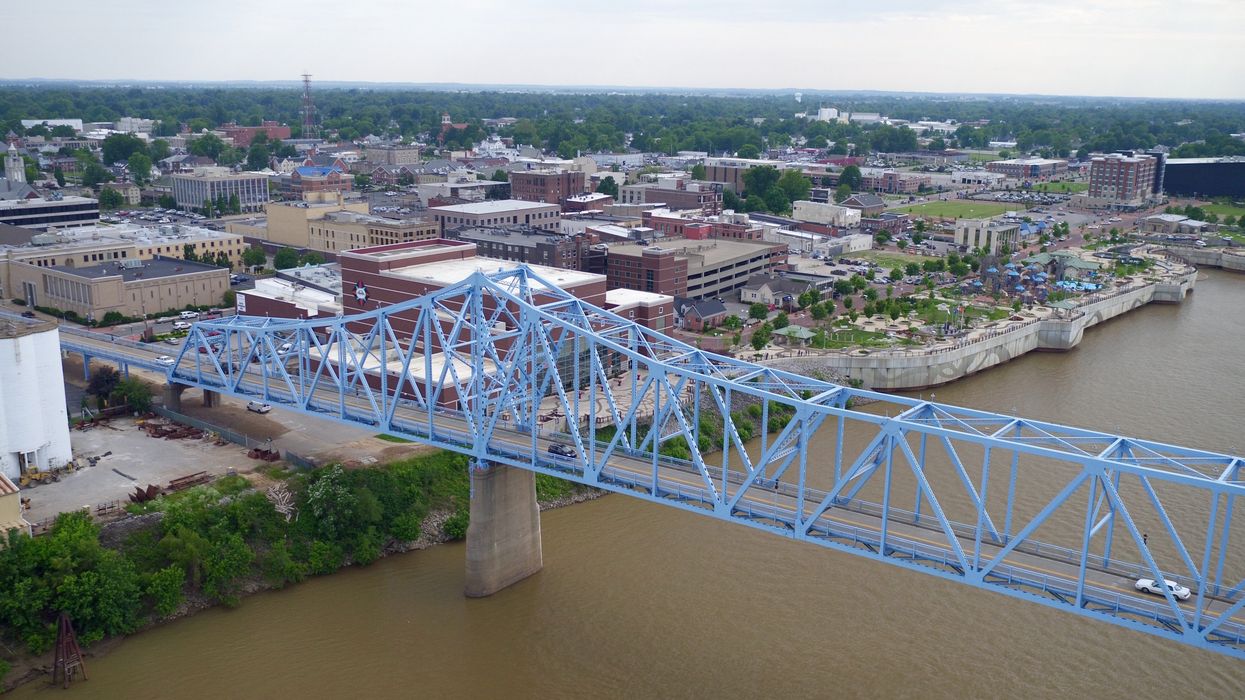Harwood is president and founder of The Harwood Institute. This is the latest entry in his series based on the "Enough. Time to Build.” campaign, which calls on community leaders and active citizens to step forward and build together.
Conventional wisdom tells us that Americans don’t have the will and ability nowadays to come together and take shared action to move forward. But that’s dead wrong. It’s why I spend so much of my professional life working deeply with communities that seek to address America’s fault lines — places like Reading, Pa., Union County, Ohio, and Alamance County, N.C.
I recently kicked off our latest community initiative in Owensboro, Ky., by speaking at what’s affectionately called the “Rooster Booster Breakfast,” which is hosted by the regional Chamber of Commerce. More than 300 folks — a “who’s who” of the community — packed into Owensboro’s stunning riverfront convention center.
Owensboro is family-oriented, faith-based and built on deep interpersonal relationships. There’s been significant downtown redevelopment. And people take enormous pride in living there. But the area is also dealing with an array of challenges, from homelessness to a lack of youth opportunities to growing disparities between the haves and the have nots. Their civic culture —the relationships, norms, leaders, organizations and networks that enable a community to work together — has badly frayed and must be strengthened if the community is to make real progress.
I ultimately told them they face a fundamental choice: Adhere to the status quo and risk stagnation or seize opportunities to come together in new ways and build a better Owensboro.
Their response: a standing ovation.
Why? Because people in Owensboro are hungry for a new path forward, just like Americans all over the country. It’s a big reason why our “Enough. Time to Build.” campaign is spreading nationwide so fast.
At issue in Owensboro is the danger of stagnation. That's different from, say, Reading, once declared the poorest community in America. Or Union County, a largely rural area grappling with rapid growth. Or Alamance County, one of the most divided places I’ve worked.
Regardless of any community’s particular challenge, so much of our country is stuck, unsure how to move forward. On top of that, what I keep experiencing in my travels is that our instincts for how to create change tend to take us in exactly the wrong direction. We turn to comprehensive plans: Seek to get as many groups and organizations and leaders around the table as possible. Spend endless time trying to coordinate everyone’s actions. Prioritize raising boatloads of money. And promise fast change.
Let’s be clear: The state of the country calls for something much deeper, more real and more promising. We must rebuild our belief in one another, demonstrate proof that we can take shared action and create growing momentum over time. Full stop.
The good news is that this is doable. That’s why, during my speech and a series of roundtables I also held in Owensboro, I asked leaders and active citizens from all parts of the community to think about change differently. To see it in terms of “starting small to go big” rather than “bigger is better.” To shift from just “getting together” to actually working together. To find what they can agree on and get moving on it. To catalyze and unleash a chain reaction of actions that not only addresses what matters to people but also strengthens the community’s civic culture. And to focus on creating a new trajectory of hope rather than seeking to solve everything at once.
Without fail, in every setting, one individual after another raised their hand to say, “I have something to contribute. I want to work on this together.”
It’s time to recognize that our very instincts around creating change are taking us in the wrong direction and to recalibrate around the practical steps we can take to get things moving again. This is core to what I’ve come to call our “new civic path,” a fundamental alternative to business as usual.
People in Owensboro are starting to forge this new path. When enough of us seize this opportunity, we can build stronger communities. And in turn, we can build a stronger country.




















